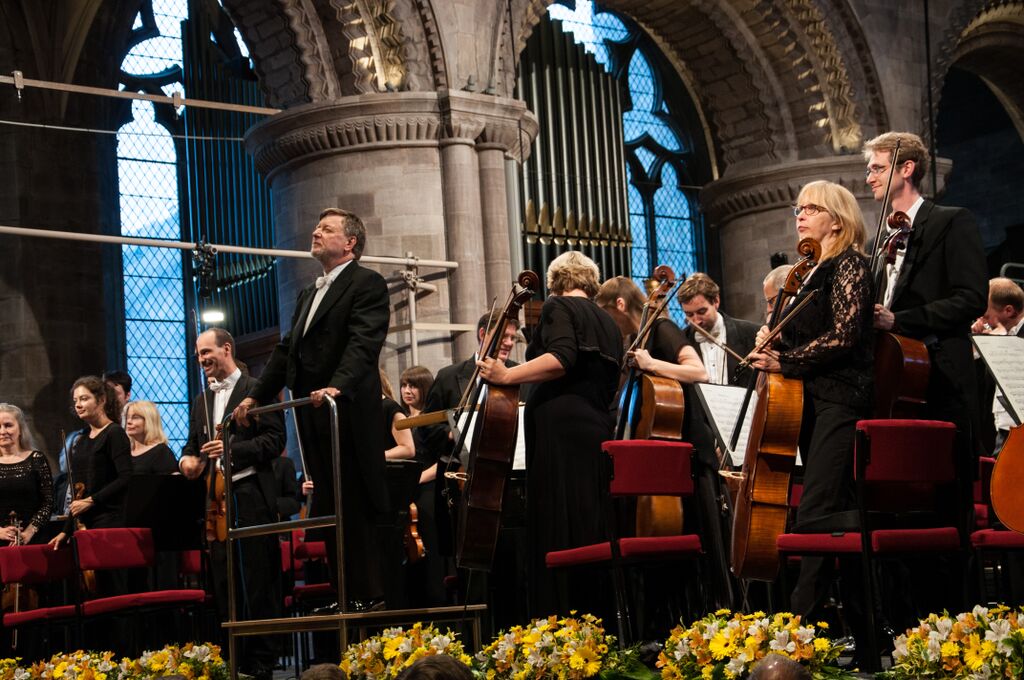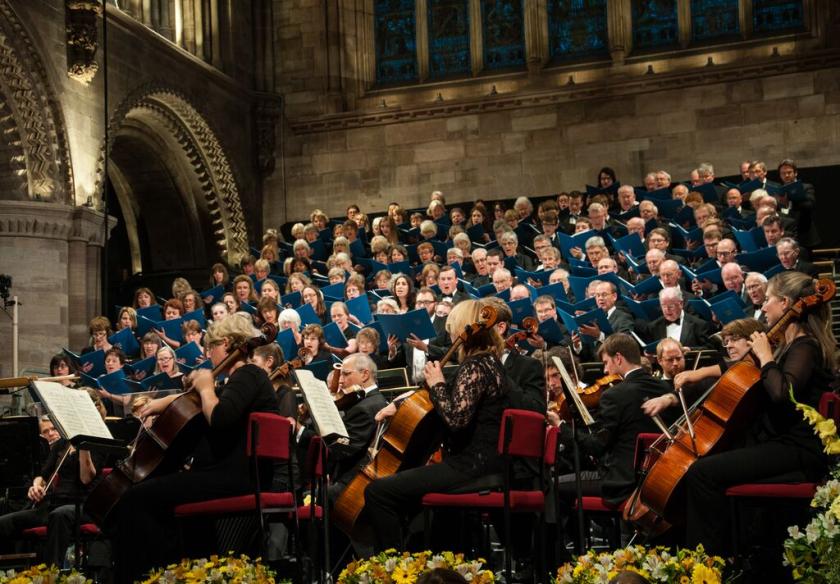In his memoir As I Remember Arthur Bliss is reticent about his experiences on the Western Front. He describes his “purely automatic” impulse to enlist in August 1914, and later recounts the nightmares that troubled his sleep for a decade after the Armistice. He barely touches upon the injury that felled him on the first day of the Somme, the experience of being gassed late in 1918, or indeed the death in battle of his beloved younger brother Kennard – describing an unending sense of loss in a single paragraph.
And yet, he writes, “I cannot make a logical sense of my life without depicting them.” That sense of attempting to put form and meaning to the indescribable permeates every bar of Morning Heroes, the choral symphony that he wrote to “exorcise” those nightmares in 1930. Its very shape is uncomfortable: there are no solo singers, and full-blooded choral movements are interspersed with spoken orations, set to orchestral underscoring. The words are the gleanings of a cultured mind struggling to place its own experience into some sort of universal context: Homer (Kennard Bliss was passionate about Berlioz), Walt Whitman, Li-Tai–Po. It’s rarely heard.
There were great, glorious blazes of sound in the two massive choral scherzos
That struggle came through to heart-breaking effect in this Three Choirs Festival performance by the Philharmonia under Sir Andrew Davis (pictured below). Morning Heroes is music of immense dignity and beauty; Bliss’s instincts are lyrical, and it’s full of quiet expressive string lines and woodwind solos of the sort that thoughtless people call “English pastoral” – though there was very little comfort to be had here. Davis, who conducted the work in London earlier this year, opened up the grain of the texture, bringing out the clash of unquiet harmonies, and letting the inner and lower orchestral voices – violas, cellos, a hollow-sounding bass clarinet – throw long shadows over the music.
There was tenderness in the string paragraphs that accompanied Andromache’s words to Hector in the opening narration – sonorously and sure-footedly delivered by Malcolm Sinclair, replacing an indisposed Samuel West, and doing his best to convey intimacy as well as clarity in the Hereford Cathedral acoustic. And there were great, glorious blazes of sound in the two massive choral scherzos that form the centre of the work. The Three Choirs Festival Chorus has magnificently bright and focused female voices, but the quality of the mens’ singing was equally high; the way they coloured individual words and phrases in Bliss’s setting of Whitman’s "The Bivouac’s Flame" showed a sensitivity that simply wasn’t an option in the headlong rush of The City Arming, or Bliss’s savage, glittering setting of the passage in the Iliad in which Achilles re-enters battle – the closest approach in Morning Heroes to the Bliss of Checkmate and the Piano Concerto.
 But nowhere in the whole work is there a passage of pure triumph or untroubled calm. Davis’s interpretation grew from that fact, and the cumulative effect was harrowing. After a roll-call of classical heroes – the Festival Chorus practically spat the final shout of “Brave Hector!” – Bliss finally stares into the eye of his own War. Tellingly, he falls silent: the words of Wilfred Owen’s "Spring Offensive" are spoken without any music at all apart from a distant thunder of timpani. It struck home shatteringly, but Bliss musters enough music to see us through to an uneasy choral resolution: Robert Nichols’ "Dawn on the Somme", sung with intense concentration and beauty by the Festival Chorus before the dying fall of a long orchestral postlude – superbly paced by Davis, who held a packed cathedral in absolute silence for the best part of a minute after the final, sombre chord for divided low strings.
But nowhere in the whole work is there a passage of pure triumph or untroubled calm. Davis’s interpretation grew from that fact, and the cumulative effect was harrowing. After a roll-call of classical heroes – the Festival Chorus practically spat the final shout of “Brave Hector!” – Bliss finally stares into the eye of his own War. Tellingly, he falls silent: the words of Wilfred Owen’s "Spring Offensive" are spoken without any music at all apart from a distant thunder of timpani. It struck home shatteringly, but Bliss musters enough music to see us through to an uneasy choral resolution: Robert Nichols’ "Dawn on the Somme", sung with intense concentration and beauty by the Festival Chorus before the dying fall of a long orchestral postlude – superbly paced by Davis, who held a packed cathedral in absolute silence for the best part of a minute after the final, sombre chord for divided low strings.
Before the interval we’d heard Sibelius’s Fifth Symphony, in an earthy, shamelessly romantic performance. Davis made the second movement into a sort of dance-intermezzo, with marked gear-changes at the ends of the first movement and the finale emphasising the point that the symphony’s argument isn’t, as it so often feels, a natural process, but a man-made one. In the context of the rest of the concert – the programme made the point that both the symphony and Morning Heroes were, in their own way, products of the War years – that made a sort of sense. It’d be good to have enough of a performance tradition of Morning Heroes to enable us make that sort of judgement. On the strength of this evening, it would more than repay the effort.














Add comment